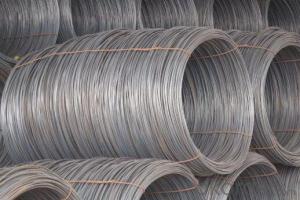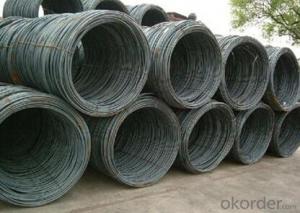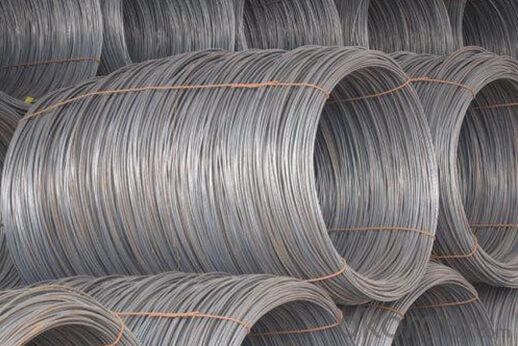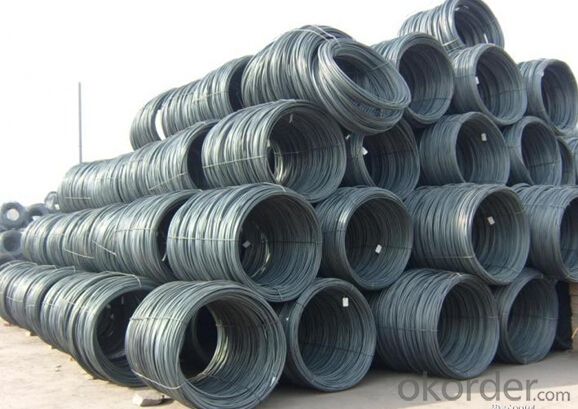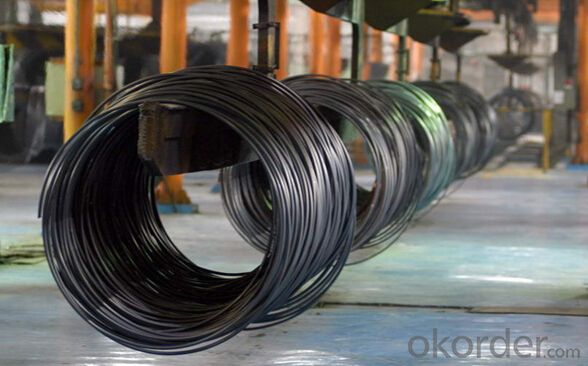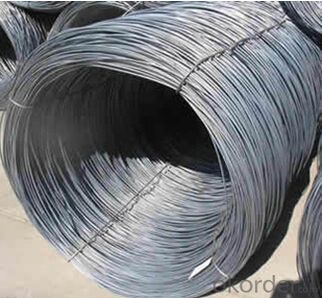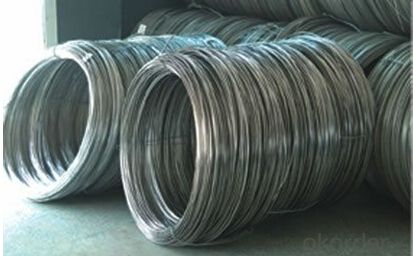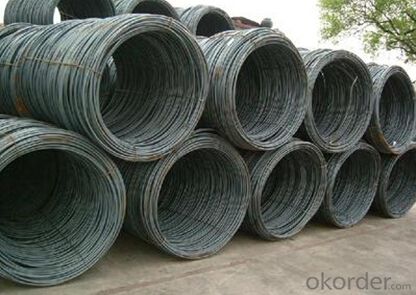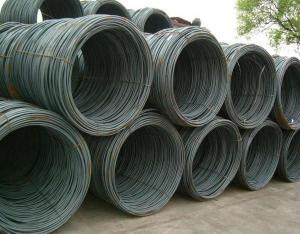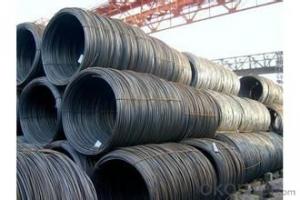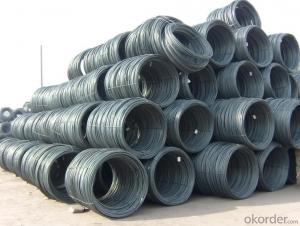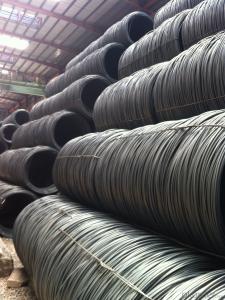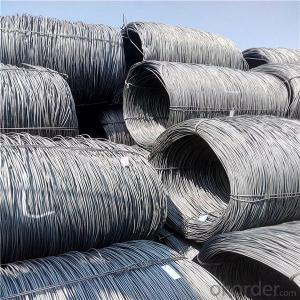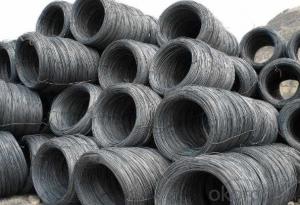Low Carton Steel Wire Rod from China factory
- Loading Port:
- Tianjin
- Payment Terms:
- TT OR LC
- Min Order Qty:
- 3 m.t.
- Supply Capability:
- 10000 m.t./month
OKorder Service Pledge
Quality Product, Order Online Tracking, Timely Delivery
OKorder Financial Service
Credit Rating, Credit Services, Credit Purchasing
You Might Also Like
Specification
Type:
Carbon Steel,Spring Steel,Bearing Steel,Gear Steel,Deformed Steel,Stainless Steel,Alloy Steel
Shape:
Steel Coil,Steel Sheet,Steel Wire Rod,Steel Flat Bar,Steel Square Bar,Steel Angle,Steel Round Bar,Steel Billets
Technique:
Hot Rolled,Cold Rolled,Cold Drawn,ERW,Forged,Saw,Extruded,EFW,Spring
Surface Treatment:
Galvanized,Coated,Copper Coated,Color Coated,Oiled,Dry,Chromed Passivation,Polished,Bright,Black,PVDF Coated
Certification:
ISO,SGS,BV,IBR,RoHS,CE,API,BSI,UL
Thickness:
5.5mm-14mm
Width:
5.5mm-14mm
Length:
In coils
Outer Diameter:
5.5mm-14mm
Net Weight:
2m.t.
Packaging:
Seaworthy packaging
Low Carton Steel Wire Rod from China factory
Detailed Information of the Low Carton Steel Wire Rod from China factory
| Name | Hot Rolled High Carbon Wire Rod |
| Shape | Round Bar/Square Bar/Flat Bar/Plate/Wire |
| Standard | GB/ASTM/SAE/AISI/DIN/JIS/EN/BS |
| Surface Treatment: | Black/Peeling/Polished/Machined |
| Delivery Condition: | Hot Rolled or Forged/Peeled or Black Surface |
| Test | SGS/UT 100% Elements Testing |
| Certificate: | ISO/Mill Certificate |
| Service: | 24 hours online service / |
| more than 20 years trading and manufacture | |
| Quality Assurance: | the third party inspection, such as SGS, BV, TUV…etc. is acceptable |
| Packaging Details: | Seaworthy Packaging or as per customer's packing instruction |
Chemical Composition of the Low Carton Steel Wire Rod from China factory
| Grade | Chemical Composition(%) | |||||
| C | Mn | Si | S | P | B | |
| SAE1006B | 0.03~O.07 | ≤0.32 | ≤0.30 | ≤0.045 | ≤0.040 | >0.0008 |
| Mechanical properties | ||||||
| Yield strength(N/mm2) | Tensile strength(N/mm2) | Elongation(%) | ||||
| 250-280 | 350-380 | ≥32 | ||||
Company Introduction the Low Carton Steel Wire Rod from China factory
CNBM International Corporation is the most import and export platform of CNBM group(China National Building Material Group Corporation) ,which is a state-owned enterprise, ranked in 270th of Fortune Global 500 in 2015.
With its advantages, CNBM International are mainly concentrate on Cement, Glass, Iron and Steel, Ceramics industries and devotes herself for supplying high quality series of refractories as well as technical consultancies and logistics solution.
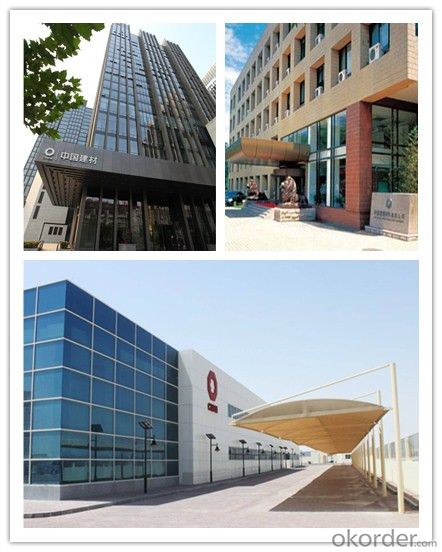
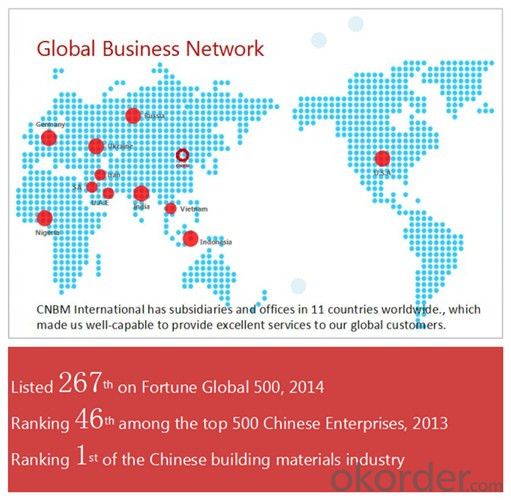
| After-sale service | CNBM provides the services and support you need for every step of our cooperation. We’re the business partners you can trust; you can relax and get on with doing business. |
| For any problem, please kindly contact us at any your convenient time, we’ll reply you in our first priority within 24 hours | |
| Advantages | Industry experience over 20 years. |
| Shipment of goods -More than 70 countries worldwide. | |
| The most convenient transport and prompt delivery. | |
| Competitive price with best service. | |
| High technical production line with top quality products. | |
| High reputation based on best quality products. |
Packaging & Delivery the Low Carton Steel Wire Rod from China factory
| Packaging Detail | Sea worthy packing /as per customer's packing instruction |
| Delivery Detail | 15 ~ 40 days after receiving the deposit |
Products Show
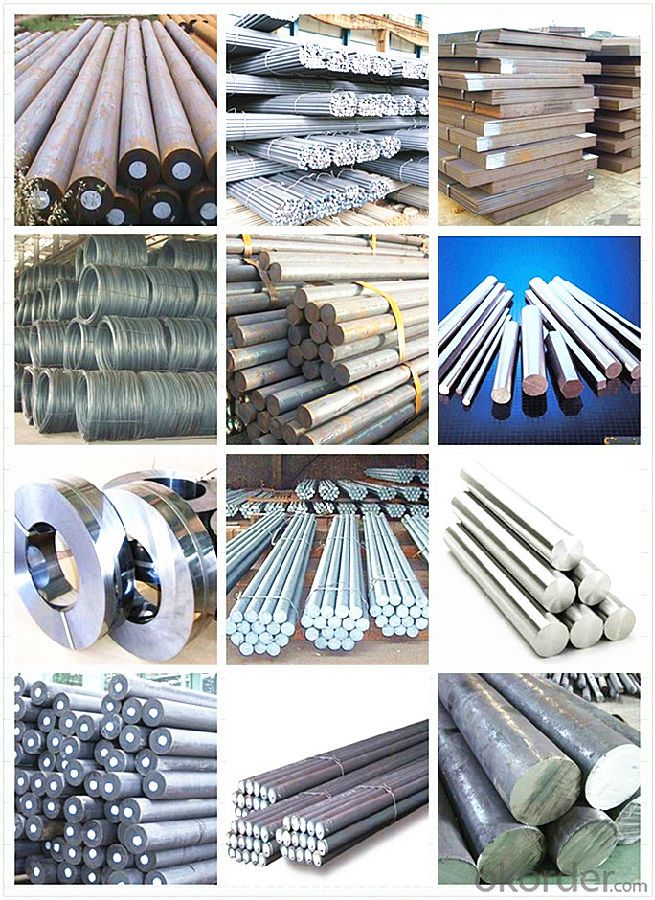
FAQ:
| Are you a trader or manufacturer? | Manufacturer |
| What’s the MOQ? | 3 metric ton |
| What’s your delivery time? | 15-35 days after downpayment received |
| Do you Accept OEM service? | Yes |
| what’s your delivery terms? | FOB/CFR/CIF |
| What's the Payment Terms? | 30% as deposit,70% before shipment by T/T |
| Western Union acceptable for small amount. | |
| L/C acceptable for large amount. | |
| Scrow ,Paybal,Alipay are also ok | |
| Why choose us? | Chose happens because of quality, then price, We can give you both. |
| Additionally, we can also offer professional products inquiry, products knowledge train (for agents), smooth goods delivery, excellent customer solution proposals. | |
| What's your available port of Shipment? | Main Port, China |
| What’s your featured services? | Our service formula: good quality+ good price+ good service=customer's trust |
| Where are your Market? | Covering more than 160 countries in the world |
- Q: How does special steel perform in extreme environments?
- Special steel is specifically designed to perform exceptionally well in extreme environments. It exhibits high resistance to corrosion, oxidation, and temperature variations, making it suitable for applications in harsh conditions such as marine, aerospace, and power industries. Additionally, special steel offers superior strength, toughness, and durability, enabling it to withstand extreme pressures, impacts, and environmental stressors without compromising its performance.
- Q: What are the different types of maraging steel?
- There are various types of maraging steel, including Maraging 200, Maraging 250, and Maraging 300.
- Q: How does special steel contribute to the power generation machinery industry?
- The power generation machinery industry greatly benefits from the use of special steel, which plays a vital role in improving the efficiency, reliability, and durability of power generation equipment. To begin with, special steel possesses remarkable mechanical properties, including high strength, toughness, and temperature resistance. These properties make it an excellent choice for manufacturing essential components of power generation machinery, such as turbines, generators, and boilers. The outstanding strength and toughness of special steel enable these components to withstand extreme pressures, temperatures, and harsh operating conditions, guaranteeing the safe and efficient functioning of power plants. Furthermore, special steel alloys can be specifically engineered to resist corrosion, erosion, and wear, which are common challenges faced by power generation equipment. Corrosion occurs due to chemical reactions between metals and the environment, while erosion and wear result from the high-speed flow of steam, water, or gases. By utilizing corrosion-resistant and wear-resistant special steel, power generation machinery can operate for extended periods without significant deterioration, thereby reducing maintenance needs and downtime. Another significant contribution of special steel to the power generation machinery industry is its ability to retain magnetic properties at high temperatures. This is particularly crucial for electrical generators, as it ensures optimal performance and efficiency. Special steel with excellent magnetic properties enables generators to produce electricity with minimal energy losses caused by heat, resulting in increased power output and reduced energy consumption. Moreover, the design flexibility of special steel allows for the production of customized components tailored to the specific requirements of various power generation technologies. For instance, in nuclear power plants, special steel alloys with high resistance to radiation and neutron embrittlement are used for constructing reactor pressure vessels and other critical components. In renewable energy systems like wind turbines, special steel with superior fatigue resistance is utilized to withstand the cyclic loading experienced by turbine blades. In conclusion, special steel plays a crucial role in the power generation machinery industry by improving the efficiency, reliability, and durability of power generation equipment. Its exceptional mechanical properties, corrosion resistance, wear resistance, magnetic properties, and design flexibility make it indispensable for manufacturing components capable of withstanding extreme conditions and ensuring the continuous and efficient generation of electricity.
- Q: How is special steel manufactured?
- Special steel is manufactured through a complex process that involves melting, refining, and shaping steel with precise chemical compositions and desired properties. This may include alloying steel with various elements, such as chromium, nickel, or molybdenum, to enhance its strength, corrosion resistance, or heat resistance. The steel is then formed into desired shapes through techniques like rolling, forging, or casting. The manufacturing process also involves strict quality control measures to ensure the final product meets the specific requirements of various industries, such as automotive, aerospace, or construction.
- Q: What are the main applications of special steel in the automotive electrical systems?
- Special steel is commonly used in automotive electrical systems for various applications such as manufacturing electrical connectors, terminals, and wiring harnesses. It offers high conductivity, corrosion resistance, and superior strength, making it an ideal choice for components that require efficient flow of electrical current and durability in harsh environments. Additionally, special steel can also be utilized in the construction of sensors, relays, and other electronic devices within the automotive electrical system, ensuring reliable performance and longevity.
- Q: How does special steel contribute to reducing weight in applications?
- Special steel can contribute to reducing weight in applications in several ways. Firstly, special steel alloys can be designed to have high strength-to-weight ratios, meaning that they can provide the same level of strength and performance as other materials, such as traditional steel or aluminum, but with less weight. By using special steel in place of heavier materials, manufacturers can reduce the overall weight of the application without compromising its structural integrity. Additionally, special steel can be manufactured with improved fatigue resistance and durability properties, which allows for the use of thinner and lighter sections without sacrificing strength. This is particularly important in industries where weight reduction is critical, such as automotive and aerospace, as it enables the production of lighter vehicles or aircraft, resulting in improved fuel efficiency and reduced emissions. Furthermore, special steel can also contribute to weight reduction through its versatility in manufacturing processes. It can be easily formed, shaped, and welded, allowing for the creation of complex and lightweight structures. This flexibility in fabrication methods allows engineers to optimize the design and maximize weight savings by using special steel in innovative ways. In summary, special steel contributes to reducing weight in applications by offering high strength-to-weight ratios, improved fatigue resistance, and durability, as well as providing flexibility in manufacturing processes. These qualities make special steel an ideal choice for industries seeking weight reduction, ultimately leading to enhanced performance, efficiency, and sustainability.
- Q: How does special steel perform in food processing applications?
- Special steel performs exceptionally well in food processing applications. Its unique properties such as high corrosion resistance, heat resistance, and hygienic surface finish make it ideal for use in equipment and machinery that come into direct contact with food. Special steel's resistance to chemicals and bacteria growth ensures that the food processing environment remains safe and contamination-free. Additionally, its durability and strength allow for efficient and reliable operation, contributing to the overall effectiveness of food processing operations.
- Q: What are the different surface treatments used for special steel?
- Special steel can undergo different surface treatments to meet specific requirements and achieve desired properties. Some commonly used treatments include: 1. Nitriding: By diffusing nitrogen into the steel surface, a hardened layer is formed, improving surface hardness, wear resistance, and fatigue strength. 2. Carburizing: Carbon is introduced into the steel surface, creating a hard and wear-resistant layer. This treatment enhances surface hardness and improves resistance to wear and fatigue. 3. Coating: A thin layer of protective material, such as zinc, chrome, or ceramic, is applied to the steel surface. Coatings provide corrosion resistance, improved aesthetics, and enhanced durability. 4. Shot peening: Small metallic or ceramic particles are bombarded onto the steel surface, inducing compressive stresses that enhance fatigue strength and resistance to cracking. 5. Electroplating: Through an electrical current, a thin layer of metal is deposited onto the steel surface. This treatment improves corrosion resistance and enhances appearance. 6. Passivation: The steel surface is treated with a chemical solution to remove impurities and create a protective oxide layer. This process improves corrosion resistance and enhances surface finish. 7. Anodizing: Although commonly used for aluminum, anodizing can also be applied to special steel. It involves creating an oxide layer on the steel surface through an electrolytic process. This treatment improves corrosion resistance, provides an aesthetic finish, and can be used for coloring. These surface treatments offer various benefits and are chosen based on specific application requirements, such as corrosion resistance, wear resistance, hardness, aesthetics, or improved mechanical properties.
- Q: What are the different test methods used to evaluate special steel?
- There are several test methods used to evaluate special steel and ensure its quality and performance. Some of the commonly employed test methods include: 1. Tensile Testing: This method measures the steel's ability to withstand tension or pulling forces. It helps determine the ultimate tensile strength, yield strength, and elongation of the steel. 2. Hardness Testing: Hardness tests, such as Rockwell or Brinell tests, evaluate the resistance of special steel to indentation or scratching. It provides an indication of the steel's strength and durability. 3. Impact Testing: This test measures the steel's ability to absorb energy under high-stress conditions. Charpy and Izod tests are commonly used to determine the toughness and resistance of special steel to sudden shocks or impacts. 4. Chemical Analysis: Chemical analysis involves determining the composition of the steel, including the percentage of various elements like carbon, manganese, chromium, and others. This helps ensure that the steel meets the required specifications and standards. 5. Microstructure Evaluation: Microscopic examination of the steel's microstructure can reveal important information about its grain size, phase distribution, and any potential defects or inclusions. Techniques such as optical microscopy or electron microscopy are employed for this purpose. 6. Corrosion Testing: Special steel often needs to withstand harsh environments or corrosive substances. Various corrosion tests, such as salt spray tests or immersion tests, evaluate the steel's resistance to corrosion and degradation. 7. Non-Destructive Testing (NDT): NDT methods, including ultrasonic testing, magnetic particle testing, or eddy current testing, are employed to detect surface or internal defects without damaging the steel. These tests provide valuable information about the steel's structural integrity. 8. Fatigue Testing: Fatigue tests simulate repetitive loading conditions to determine the steel's resistance to cyclic stress. This helps evaluate the steel's durability and ability to withstand long-term usage or repetitive loading. By employing these different test methods, manufacturers and quality control departments can assess the mechanical properties, chemical composition, microstructure, and other important factors of special steel to ensure it meets the required standards and specifications.
- Q: How does special steel contribute to improving product performance in corrosive environments?
- Special steel contributes to improving product performance in corrosive environments due to its exceptional corrosion resistance properties. It is specifically designed to withstand exposure to harsh chemicals, moisture, and other corrosive elements, thus preventing the degradation and deterioration of the product. By using special steel, manufacturers can ensure longer product lifespans, increased durability, and reduced maintenance costs, ultimately leading to improved performance and customer satisfaction in corrosive environments.
Send your message to us
Low Carton Steel Wire Rod from China factory
- Loading Port:
- Tianjin
- Payment Terms:
- TT OR LC
- Min Order Qty:
- 3 m.t.
- Supply Capability:
- 10000 m.t./month
OKorder Service Pledge
Quality Product, Order Online Tracking, Timely Delivery
OKorder Financial Service
Credit Rating, Credit Services, Credit Purchasing
Similar products
Hot products
Hot Searches
Related keywords
